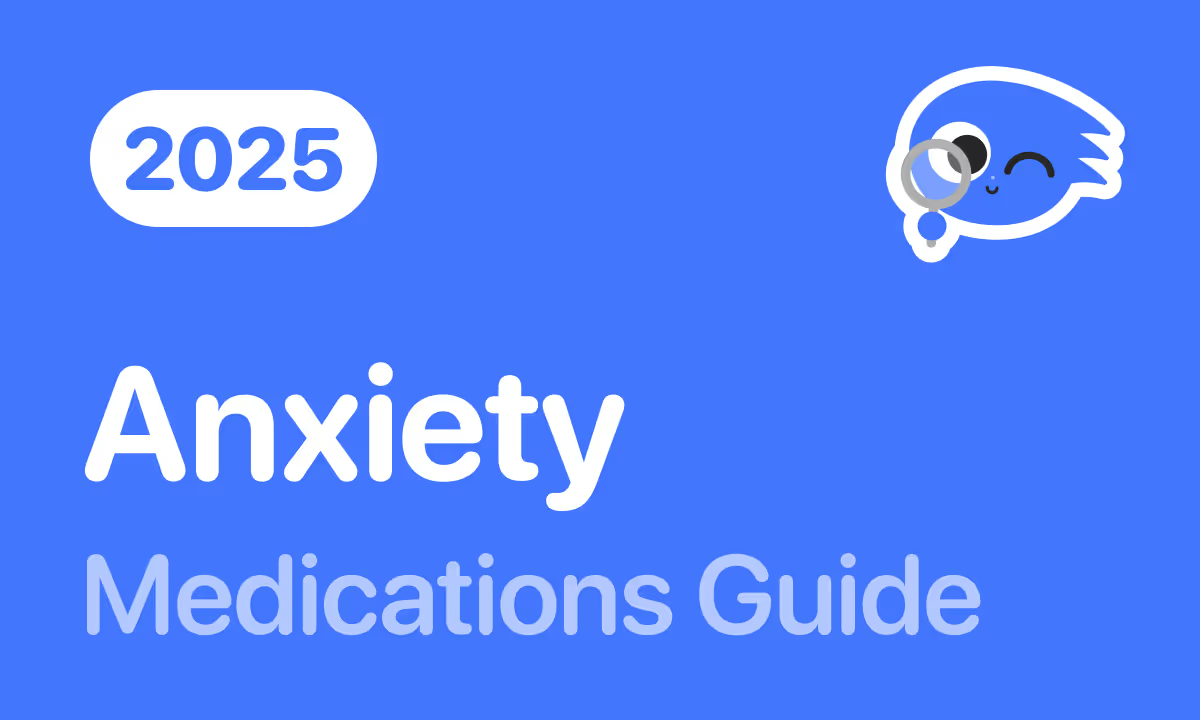Proper medication management is crucial for a smooth surgical procedure and recovery. Not only is preparing for surgery stressful, but understanding which medications to take or avoid can be add to that stress.
In this article, we’ve created a comprehensive guide that’ll help you prepare for your upcoming surgery, which medications are safe to take or should be avoided, and how to manage pain effectively after surgery.
But it's important to note that every situation is different and it's always best for a patient to consult their doctor on how to prepare before heading into the operating room.

Before a Surgical Procedure
Before any surgical procedure, it's imperative that you openly communicate with your healthcare provider about all drugs and supplements you are taking.
Some medications, including over-the-counter drugs or common pain medications, can result in complications such as excessive bleeding, affecting anesthesia, or delayed healing. Your healthcare provider will provide specific instructions, but here are general guidelines to help you prepare:
- Inform Your Surgeon: Provide a complete list of all current medications that you're taking, including prescriptions, over-the-counter drugs, vitamins, and herbal supplements.
- Follow Medication Instructions: Your healthcare provider will likely give you instructions on when to stop eating and drinking, which medications to stop taking, and when to take your last dose of certain drugs.
- Adhere to Fasting Guidelines: For some surgeries, you may need to fast for a specific period before the procedure, which could affect when and how you take your medications.
- Avoid Certain Supplements: Some supplements, can affect bleeding and should be avoided unless otherwise directed.
- Stop Smoking and Limit Alcohol: Smoking and alcohol can interfere with anesthesia and healing. Quitting smoking and avoiding alcohol at least a few weeks before surgery can improve your recovery.
- Stay Hydrated and Eat Healthily: In the days leading up to surgery, eat balanced meals and drink plenty of water to keep your body strong and well-nourished for the healing process.
- Organize Your Home for Recovery: Prepare your home in advance by arranging a comfortable space for rest, stocking up on essentials, and setting up any necessary medical equipment or aids.
- Ask Questions and Clarify Concerns: Don’t hesitate to ask your healthcare provider about any concerns, including anesthesia, recovery expectations, or specific instructions related to your medications and overall care.
Drugs That Must Be Avoided: Anti-Inflammatory Medications
Anti-inflammatory medications are commonly used for pain relief, but many should be avoided before surgery due to their blood-thinning effects. Medications such as Ibuprofen (Advil) and Naproxen are nonsteroidal anti-inflammatory drugs (NSAIDs) that can increase complications during surgery.
NSAIDs work by blocking certain substances in the body that cause inflammation and pain, but they also inhibit platelet function, which is crucial for blood clotting. This can lead to excessive bleeding during or after surgery, complicating the procedure and recovery.
Which Pain Medications Should I Take or Avoid?
Preoperative pain management — such as taking pain killers — is quite common in many patients preparing for upcoming surgeries, but it's important to note that not all pain medications are safe before a surgical procedure. So it’s essential to understand which ones are appropriate.

Medications Safe to Take Before Surgery:
- Tylenol (Acetaminophen): Safe to take before surgery as it does not affect platelet function or affect bleeding during surgery.
- Vicodin (Hydrocodone): Safe when prescribed as it does not affect bleeding or platelet function during surgery.
- Percocet (Oxycodone): Manages pain effectively without increasing the possibility of bleeding when taken as directed.
- Darvocet (Propoxyphene ): Does not affect platelet function or bleeding during surgery. Safe under medical supervision.
Medications to Avoid Before Surgery:
- Ibuprofen (Advil, Motrin): Can potentially increase bleeding during surgery due to its effects on platelet function.
- Naproxen (Aleve): An NSAID that increases bleeding, it should be discontinued at least a week before surgery.
- Aspirin: A blood thinner that significantly increases bleeding risk. It should be stopped well in advance of your surgery unless otherwise advised by your doctor.
- Ketorolac (Toradol): A potent NSAID that can significantly increase the possibility of bleeding and is generally avoided before surgery.
Other Medications to Take or Avoid
Beyond pain management medication, other common drugs and supplements may need to be adjusted before surgery.

Medications Safe to Take Before Surgery:
- Blood Pressure Medications (except ACE inhibitors): Most are safe, but always confirm with your healthcare provider.
- Thyroid Medications: Typically safe to continue as they do not interfere with surgery or anesthesia.
- Antidepressants: Usually safe to take, but you should still notify your surgical team to avoid any potential complications.
- Statins: Generally safe and sometimes recommended to continue taking as they may help reduce surgical complications.
Medications to Avoid Before Surgery:
- Plavix (Clopidogrel): A blood thinner that should be stopped well in advance due to the high chance of excessive bleeding during surgery.
- Coumadin (Warfarin): Another blood thinner that significantly increases bleeding risk. Consult your surgeon for guidance on when to stop.
- Herbal Supplements: Many herbal supplements can affect bleeding or interact with anesthesia. It’s recommended that you avoid them before surgery.
- Vitamin E: Known to increase bleeding risk, it should be discontinued before surgery unless your doctor advises otherwise.
Post-Operation: Dealing with Severe Pain
Moderate pain is to be expected for most surgeries, but excessive pain can be a problem for your recovery. Managing pain effectively after surgery is just as important as before surgery. If pain becomes severe, follow these tips:
- Follow Your Doctor’s Orders: Only take medications as prescribed to manage pain. Overuse or misuse of painkillers can lead to complications or slow down the healing process.
- Use Tylenol Safely: Tylenol is often recommended as it manages pain without increasing bleeding risks after surgery.
- Avoid NSAIDs Post-Surgery: Until your surgeon clears you, it’s best to avoid NSAIDs like ibuprofen and naproxen to reduce post-operative recovery times.
- Consider Opioids Carefully: Opioids like hydrocodone can be used for severe pain, but only under strict medical supervision controlled doses due to their addictive nature and potential side effects.
- Non-Medication Pain Management: Incorporate techniques like ice packs, elevation, or gentle movement as advised to manage pain and reduce inflammation naturally.

Final Thoughts
Proper medication management is essential to ensure a safe and successful surgical outcome.
Always consult with your healthcare provider about any medications or supplements you take, and adhere strictly to their guidelines before going into the operating room or after leaving it.
By carefully selecting which medications to take or avoid, you can minimize surgical risks and ensure a smoother recovery process.





